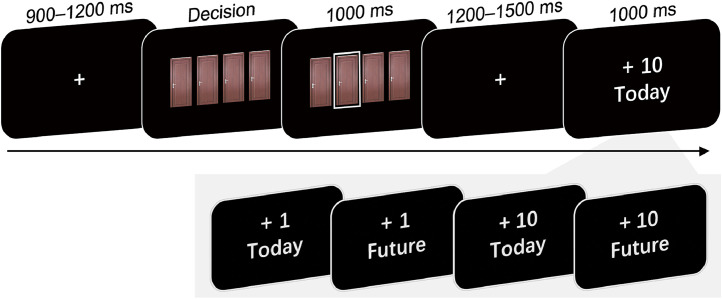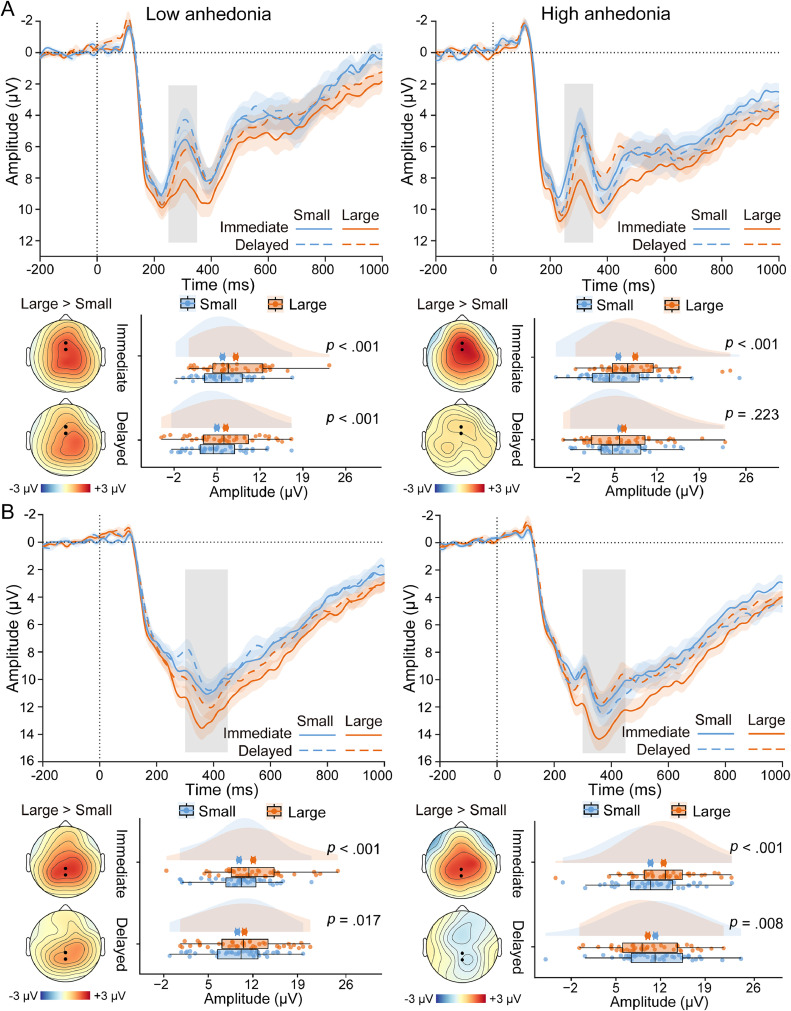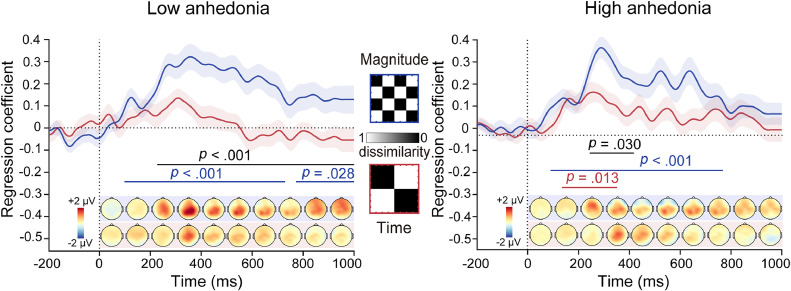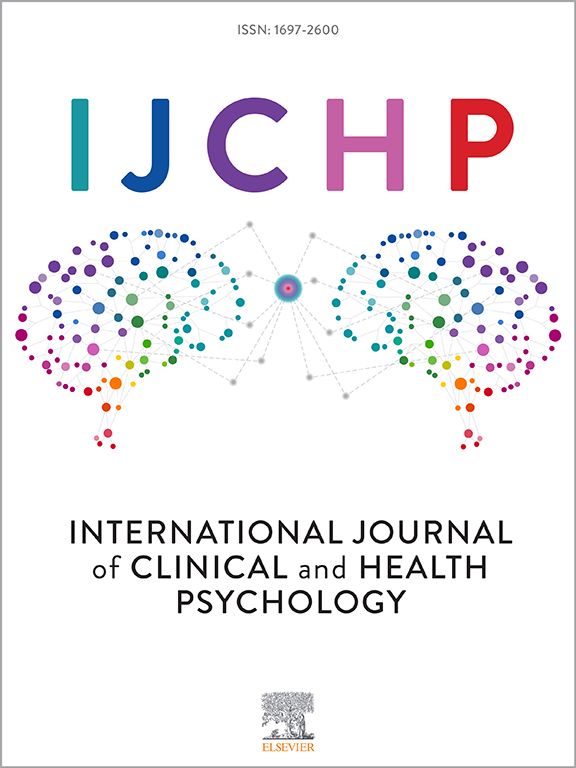快感缺乏对奖励评价的神经延迟折扣。
IF 4.4
1区 心理学
Q1 PSYCHOLOGY, CLINICAL
International Journal of Clinical and Health Psychology
Pub Date : 2025-01-01
DOI:10.1016/j.ijchp.2024.100542
引用次数: 0
摘要
背景/目的:近年来,人们对从时间动力学角度剖析快感缺乏症的预期性和完满性方面的兴趣激增。然而,很少有研究直接考察快感缺乏症中奖励评价与时间的关系。方法:使用延迟折扣任务,这项事件相关电位研究检查了从非临床样本中招募的高快感缺乏症组(N = 40)和低快感缺乏症组(N = 40)对立即或六个月后可获得奖励的神经表征。结果:我们发现快感缺乏与奖励评估时更大的神经延迟折扣有关。当奖励在6个月后发放时,高快感缺乏症组与低快感缺乏症组相比,奖励幅度对奖励积极性(RewP)的影响减弱了,这证明了这一点。表征相似性分析表明,高快感缺乏组与低快感缺乏组在RewP期间奖赏时间的神经编码增强进一步证实了延迟奖赏加工的畸变。结论:这些发现提供了经验证据,表明快感缺乏症是由对未来奖励的迟钝的神经表征而不是即时奖励驱动的,这表明在快感缺乏症中无法形成对未来积极体验的心理表征。本文章由计算机程序翻译,如有差异,请以英文原文为准。



Greater neural delay discounting on reward evaluation in anhedonia
Background/objective
Recent years have witnessed a surge of interest in dissecting the anticipatory and the consummatory aspects of anhedonia in terms of temporal dynamics. However, few research has directly examined reward valuation as a function of time in anhedonia.
Method
Using a delay discounting task, this event-related potential study examined the neural representation of rewards available immediately or in six months in a high-anhedonia group (N = 40) and a low-anhedonia group (N = 40) recruited from a nonclinical sample.
Results
We found that anhedonia was associated with greater neural delay discounting during reward evaluation. This was evidenced by a blunted effect of reward magnitude on the reward positivity (RewP) in the high-anhedonia compared to the low-anhedonia group when the rewards would be delivered six months later. Representation similarity analysis revealed that the aberration in processing delayed rewards is further corroborated by enhanced neural coding of reward time during the RewP period in the high-anhedonia versus low-anhedonia group.
Conclusions
These findings provide empirical evidence to show that anhedonia is driven by a blunted neural representation of future rewards instead of immediate rewards, suggesting an inability to form mental representations of future positive experiences in anhedonia.
求助全文
通过发布文献求助,成功后即可免费获取论文全文。
去求助
来源期刊

International Journal of Clinical and Health Psychology
PSYCHOLOGY, CLINICAL-
CiteScore
10.70
自引率
5.70%
发文量
38
审稿时长
33 days
期刊介绍:
The International Journal of Clinical and Health Psychology is dedicated to publishing manuscripts with a strong emphasis on both basic and applied research, encompassing experimental, clinical, and theoretical contributions that advance the fields of Clinical and Health Psychology. With a focus on four core domains—clinical psychology and psychotherapy, psychopathology, health psychology, and clinical neurosciences—the IJCHP seeks to provide a comprehensive platform for scholarly discourse and innovation. The journal accepts Original Articles (empirical studies) and Review Articles. Manuscripts submitted to IJCHP should be original and not previously published or under consideration elsewhere. All signing authors must unanimously agree on the submitted version of the manuscript. By submitting their work, authors agree to transfer their copyrights to the Journal for the duration of the editorial process.
 求助内容:
求助内容: 应助结果提醒方式:
应助结果提醒方式:


